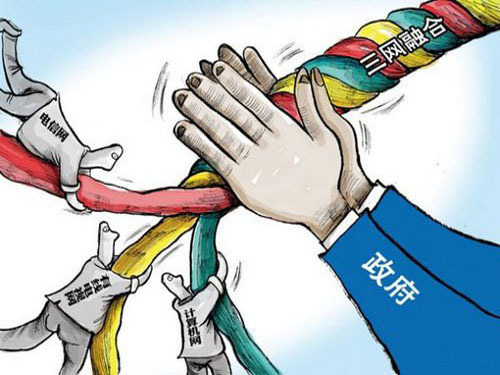
Take out the mobile phone, open the WeChat shake, you can participate in TV program interaction, join the "grab the Red Packet" war. This multi-screen application based on "triple play" creates an experience and sharing between TV and users, creating a brand-new TV ecology environment. According to the planning of the State Council, 2015 is a sprint year for the full realization of the development of “triple playâ€. The long-delayed radio and television enterprises are also quietly accelerating the "triple play" layout.
"Use TV" and "Play TV"
If you still stay in the stage of watching TV programs only, then you are outdated!
At the 23rd China International Broadcasting and Television Information Network Exhibition recently held, the IPTV booth based on the "Triple Play" attracted many visitors. The reporter saw that through a built-in high-speed WiFi smart set-top box, users can share TV programs broadcast at different frequencies via Wi-Fi to mobile phones, PADs, and Other terminals. Video and pictures on the terminal can also be played on the TV simultaneously. Users can also download many applications such as education, games, social networking, business office, and home KTV on TV. The application of "triple play" has begun to emerge in the field of broadcasting and television. The on-site staff told the “Economic Daily†reporter that in the past it was watching TV passively. Now it is “playing TV†and “using TVâ€.
“Triple play†refers to the interconnection, interoperability, and resource sharing of the three major networks of telecommunications networks, radio and television networks, and the Internet. It can provide users with various services such as voice, data, and radio and television services. Its application covers intelligent transportation, environmental protection, and government. Work, public safety, safe home and many other aspects. In the future, mobile phones can watch TV and surf the Internet; TVs can make calls and go online; computers can call and watch TV. There is a pattern between you and me.
Broadcasting Department quietly layout
In the era of mobile Internet, the cable television network is undergoing market changes from monopoly to competition. The viewing of broadcast television programs has also changed from a single terminal to multiple terminals. The traditional package payment mode of cable TV has not been adapted to the development. In particular, the rise of Internet TV has brought great pressure on cable television.
The Next Generation Radio and Television Network (NGB) will be a wired and wireless intelligent integrated network architecture. Radio and television companies frequently applied for and obtained the qualifications of Internet-related businesses promulgated by the Ministry of Industry and Information Technology, indicating that the broadcasting and TV department is stepping up its efforts to deploy a three-network integration market where Internet companies and telecom operators took the initiative. According to reports, Radio and TV Networks, Hubei Radio and Television, Chongqing Cable, Guizhou Broadcasting, Hubei Broadcasting and Radio have obtained the approval of the Ministry of Industry and Information Technology and can carry out business such as Internet access based on cable television, value-added Internet data transmission and domestic IP telephony. The curtain of cooperation has also been opened, such as the recent strategic cooperation between Yangguang and the State Grid Corporation of China to achieve Internet TV business; Hubei Broadcasting and Alipay hand in hand and so on. Zhao Jingchun, chairman of China Radio and Television Network Co., Ltd., said that it will accelerate the integration and upgrading of the nationwide cable television network and accelerate the development of "triple play" services.
Big Data "understand" users
Traditional video sites are often maintained by rebroadcasting television programs, and there is no good profit model. Using big data to analyze user preferences and achieve accurate push has become a hot topic of competition.
Some hit American dramas are dramas that are "calculated" using big data. What to shoot, who to shoot, who plays, and what to broadcast, etc. are all based on the preferences of tens of millions of viewers. U.S. video site Netflix records more than 30 million viewing operations (including pauses, replays, fast forwards, and stops) on a user's remote control every day, plus 4 million ratings and 3 million searches, and collects Internet users' comments on television programs from the Internet. , conduct big data analysis, according to which prejudging the preferences of the general audience, select the script, director and actor. At the same time, according to the previous season’s broadcast of collected user big data, the drama and even the actors were adjusted.
Some major video websites in China have also built big data analysis platforms. Sohu Video and Tencent used the right to use the Internet to broadcast “China Good Voice,†and encouraged netizens to use Weibo and WeChat to refresh their screens. This effectively mobilized the sentiments of netizens, achieved click-through rates, and won ad revenue. Some websites also set up a social platform to watch the audience of the same TV program, discuss the plot, introduce the location of the plot, tie the social networking platform of the video website with the search engine, and develop the business model of the video website.
Longdi Light Equipment Technology Co., Ltd , http://www.gz-ledlight.com